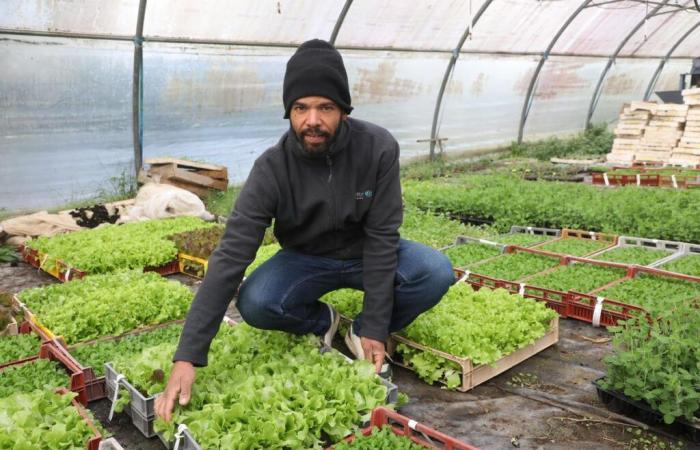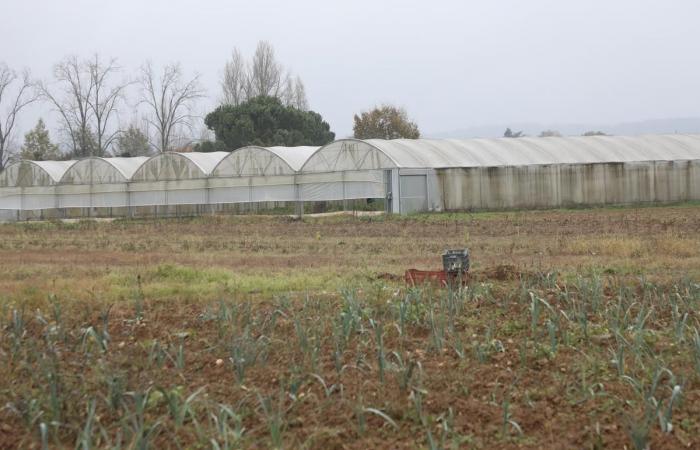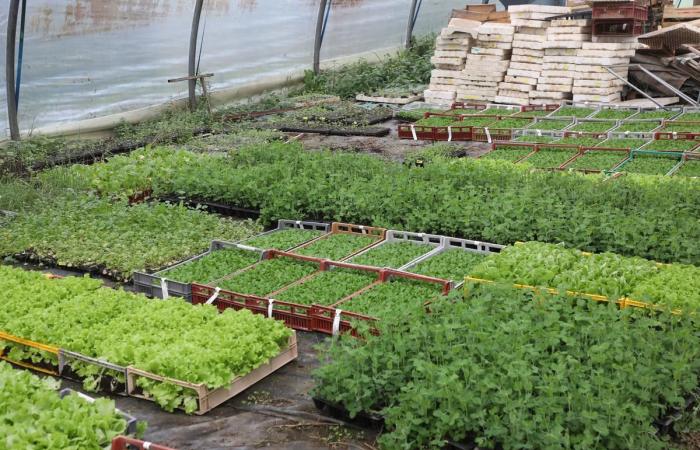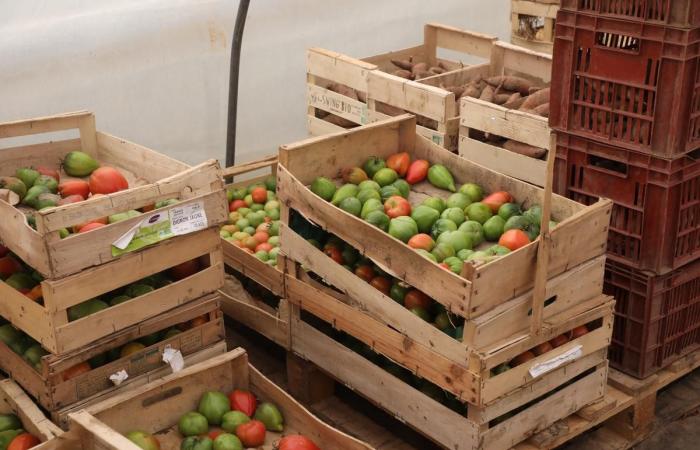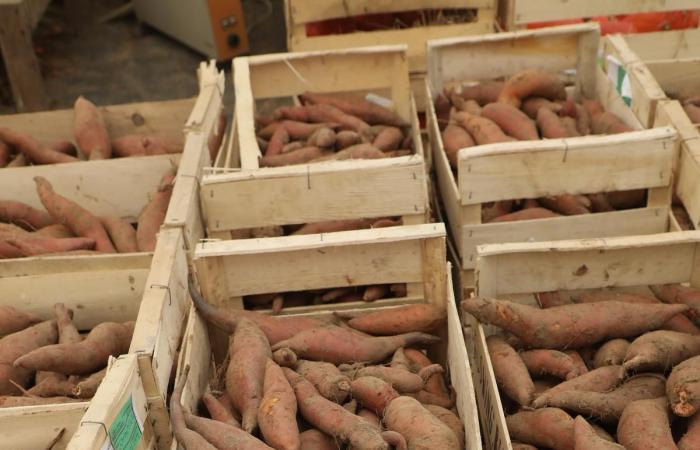« Here, it's good, it's organic. » The welcome sign at the entrance to the Verdier farm, in Saint-Astier in Dordogne, has not changed. She always mentions the name of Françoise David, the former owner of the premises bought by Kevin Berthelot, 33, in December 2023. Quite a symbol. The story of a life dedicated to organic market gardening, spent in greenhouses and in the fields, which now welcomes a new one in the same agroecological lineage.
The unthinkable
Kevin was able to achieve “the unthinkable”, namely the purchase of the 13 hectare farm of Françoise, one of the pioneers of organic conversion in the Dordogne. Not only the acquisition of private buildings, but also the land, equipment, 6,000 m² of greenhouses and crop advances (all seed stocks). “I only had a personal contribution, which was used to finance the private part, no professional contribution. The total project amounted to 560,000 euros, including 150,000 for the land,” explains the market gardener.
This is where Fermes en vie (FEVE), which relies on social and solidarity citizen savings (opposite), intervenes. The Bordeaux real estate company, which financed one of its first farms in Cussac in Dordogne three years ago, does not hesitate to provide its support. The market gardener ticks all the boxes: a serious, economically viable project, in line with the land company's agroecological charter.
Supported by an advisor from the Dordogne Chamber of Agriculture, he obtained more traditional loans from Crédit Agricole for greenhouses and equipment, and a loan at a subsidized rate on the crowdfunding platform Miimosa for the rest. Special feature of FEVE? Make him a tenant on his own land with an option to buy. “I have a 25-year farm lease, which is quite protective. It's quite practical and flexible. I can repurchase whenever I want. If I do this job for 25 years, that won’t be bad,” smiles the former postdoctoral researcher.
Kevin Berthelot, among the sparse leeks, which have suffered from the latest climatic hazards.
Stéphane Klein / SO
Author of a thesis in 2016 on the chemical communication of ants, between queens and workers, he chose to reconvert to market gardening upon his return from the United States in 2020. “I left research out of convenience. I think it was me who didn't match the search. We only value 5% of what we do, while I wanted something more concrete,” explains the person concerned. On his return from the United States, he trained for two years in market gardening in Normandy as a market gardener. At the same time, he obtained a BTS in agriculture, because, he says, he “always needs a theoretical background”.
The desire to go further south, to this native of Toulouse, and the professional installation of his partner in the Dordogne, brings him to Saint-Astier, on the land of “Madame David”. He was first hired as an employee, in 2022, at the same time as three other people. “She was 63-64 years old and had wanted to retire for three or four years,” says Kevin, seduced by the idea of transmission. Slowly, but surely, the seed grows.
Stéphane Klein / SO
Kevin Bertherlot operates 6,000 m² of greenhouses where a full range of vegetable varieties grows.
Two years later, with his hands and feet on the ground, he does not regret his move for a single moment. He spends half his days harvesting and packaging vegetables (a huge production of salads), with the three employees he kept. The afternoon is devoted to setting up and maintaining the crops, not counting “the important administrative part”.
Stéphane Klein / SO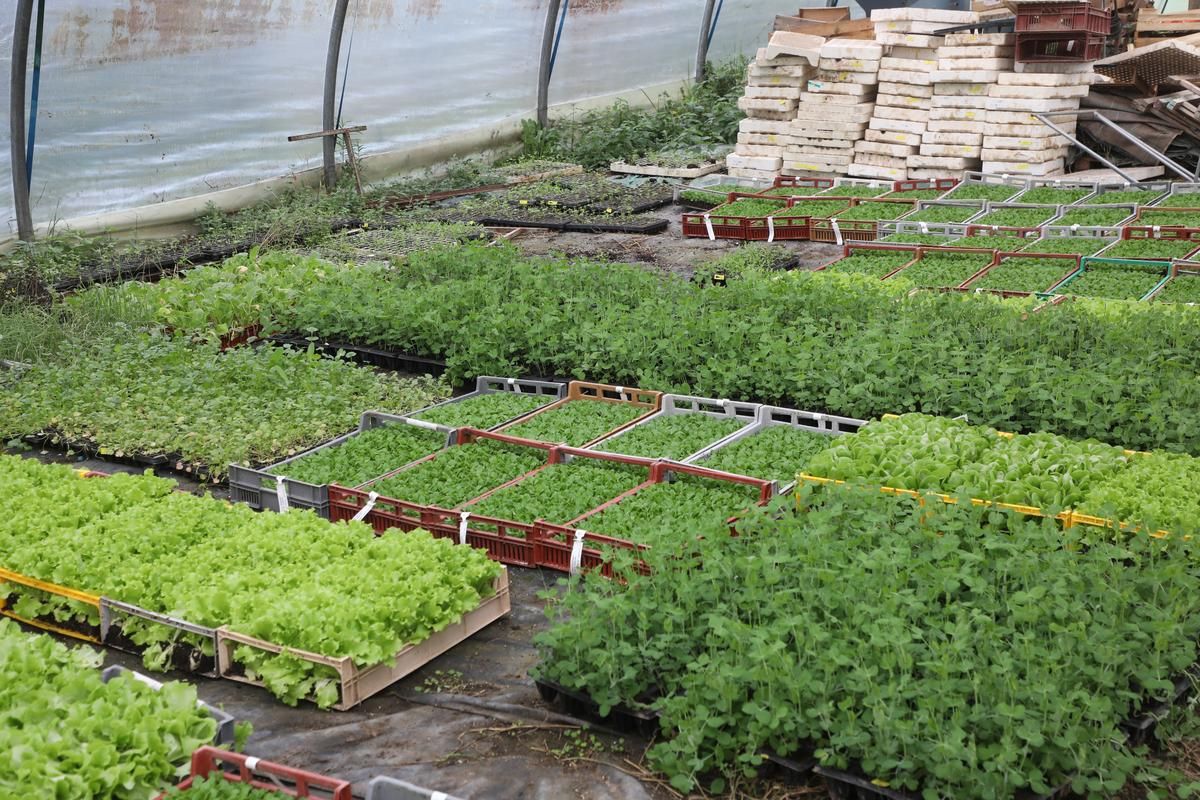
The Verdier farm produces a huge number of salads (here the greenhouse which houses the plants delivered by a nurseryman).
No problem when you farm 6 to 7 hectares on average, and grow thousands of tomato plants and other very varied vegetables in a greenhouse. The days start early, even earlier in summer to withstand the high heat, and end late. “Still slightly understaffed for what we have to do,” doesn't sugarcoat the market gardener.
Stéphane Klein / SO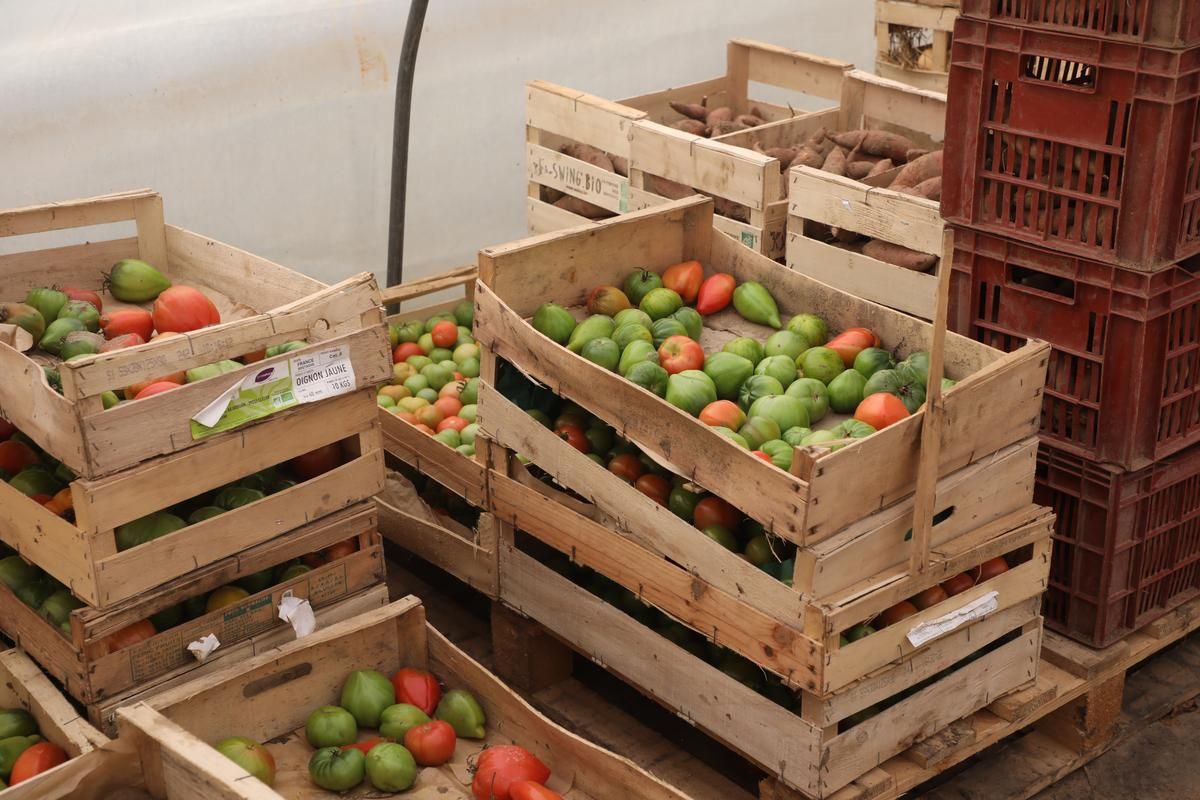
Warm, the last tomatoes of the season finish turning red, alongside the sweet potatoes.
Stéphane Klein / SO
Crates of sweet potatoes, sheltered from the rain and the cold, are offered for various sales.
A farmer, however, happy to have found “an exciting job”. “When it works, it’s great,” enthuses the man who follows in the footsteps of Françoise David, granddaughter of a market gardener. He was able to benefit from a sponsorship internship alongside him. For her, this relay rhymes with satisfaction. “Even if it’s not my children who are taking over, it’s really good. Being able to hand over is the culmination of a life of work. All of this is not lost, and what's more, I have the satisfaction of knowing that there will be no industrial culture,” adds Françoise David.
In these steps, Kevin continues direct sales on the farm, two weekly markets in Périgueux and Saint-Astier, daily deliveries to a producers' shop and on the Manger bio en Périgord collective catering platform.

